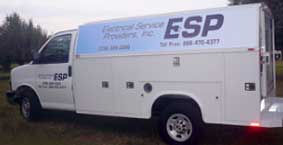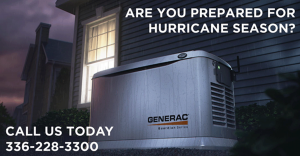Connecting your generator to your home
To connect your generator to your home, you will need a transfer switch. A transfer switch is a device that allows you to safely switch from utility power to generator power. There are two types of transfer switches: manual and automatic. Manual transfer switches require you to manually switch from utility power to generator power. Automatic transfer switches automatically switch from utility power to generator power when the utility power goes out.
To connect your generator to your home using a transfer switch, follow these steps:
- Turn off the main breaker in your home’s electrical panel.
- Connect the generator to the transfer switch using a generator cord.
- Start the generator.
- Switch the transfer switch to generator power.
- Turn on the breakers in your home’s electrical panel one at a time.
Safety tips
- Never connect your generator directly to your home’s electrical panel. This can back feed power to the utility lines and put utility workers at risk.
- Always use a transfer switch to connect your generator to your home.
- Never operate your generator indoors.
- Place your generator at least 20 feet away from your home and other buildings.
- Keep your generator dry and protected from the elements.
- Never refuel your generator while it is running.
- Turn off and disconnect your generator when you are finished using it.
Keep your power on
Power outages can be an inconvenience at best and a dangerous situation at worst. Having a standby generator for your home can mitigate the harmful and inconvenient effects of a power outage. But making the decision that you want a generator for your home is only the beginning of the process. Standby generators come in many different types. They’re designed for different uses, powered by different fuels, and have different power outputs.
For the best results, Hire the Pros
When purchasing a backup generator or getting a generator interlock, it’s essential to hire professionals. They have the expertise and experience to guarantee a secure and seamless installation. Additionally, specialists in whole-house generator sales and installation can help you select the most suitable generator for your requirements.
Don’t be deterred by the potential expenses of generator installation. The peace of mind that comes from knowing your whole-house generator has been correctly installed and will operate safely and efficiently makes the additional costs worthwhile.
Service Areas
Alamance County, Chatham County, Orange County, Greensboro, Durham, High Point, Chapel Hill, Burlington, Pittsboro, Reidsville, Hillsborough, Rougemont, Bahama, Mebane, Summerfield, Carrboro, Graham, Colfax, Jamestown, Elon Chapel Hill, Burlington, Carrboro, Durham, Gibsonville, Hillsborough, Graham, Pittsboro, Morrisville, Cary.
Latest Articles
- Common Electrical Problems in Commercial Office
- Inverter vs Traditional Generator
- Electrical Safety Tips for Children
Do you have a Home Stand By Generator System Already?
Electrical Service Providers is YOUR Source for Scheduled Maintenance and Repairs on Home Generator Systems. We are Factory Authorized Service Dealers for Generac and Briggs and Stratton Home Generator Systems. Call 866-470-4377.


 Electrical storms, hurricanes, and other weather events can leave your home without power for weeks. Without electricity, you’ll lose convenience and even hot water, heating, and cooling. So, what type of
Electrical storms, hurricanes, and other weather events can leave your home without power for weeks. Without electricity, you’ll lose convenience and even hot water, heating, and cooling. So, what type of 